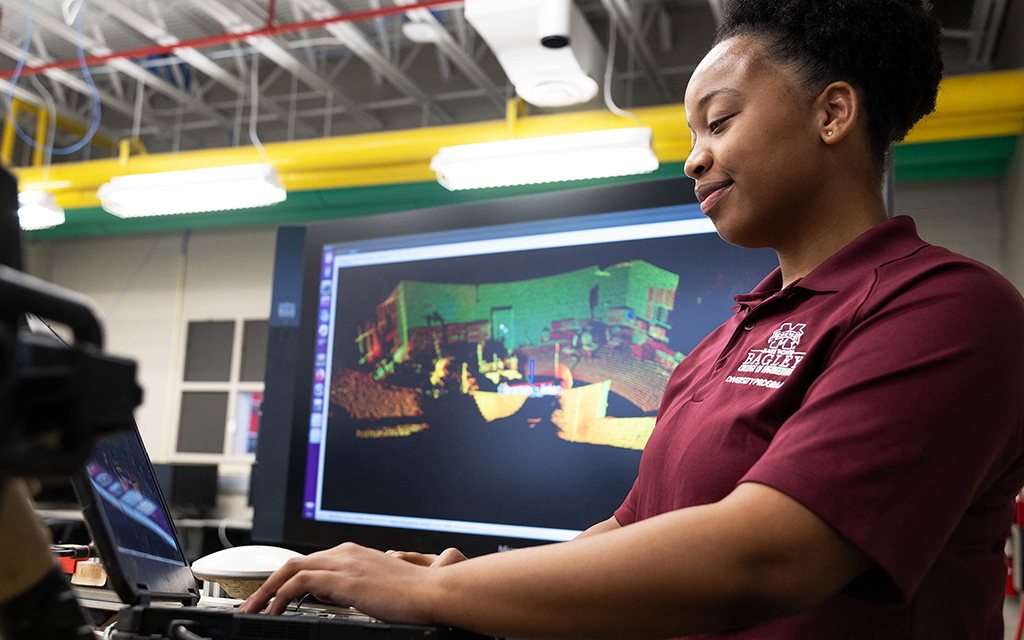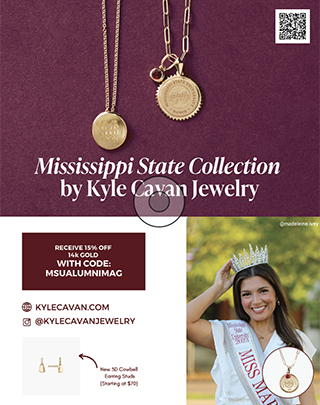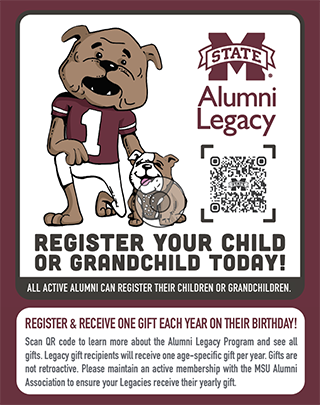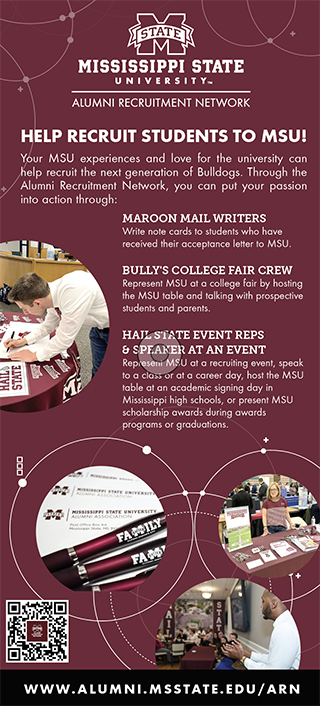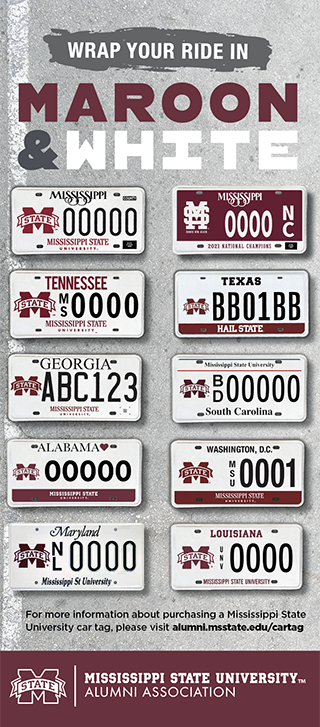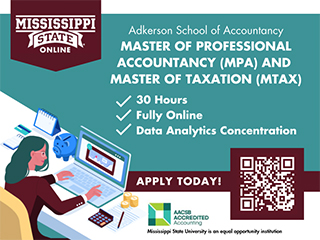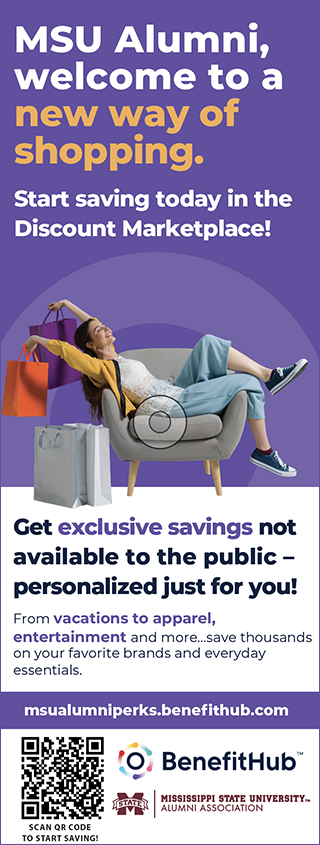New program connects underrepresented students with world-class research opportunities
When Kennedy Keyes arrived at Mississippi State in fall 2022, her knowledge of student opportunities in research was limited. However, within a few months, she was knee-deep in an MSU Center for Advanced Vehicular Systems study meant to improve accessibility in virtual reality applications.
It was one of multiple opportunities that presented itself after Keyes learned of a new program designed to increase the participation of minority and underrepresented students in research at Mississippi State University. Building Relations that Intentionally Develop Generations of Excellent Scholars, or BRIDGES, was jointly launched in 2022 by MSU’s Office of Research and Economic Development and the Division of Access, Opportunity and Success.
“I wasn’t too sure if I could do research because I didn’t really see many people that looked like me doing it,” said Keyes, a software engineering major who transferred to MSU from Holmes Community College. “It kind of put my confidence a bit down until I learned about BRIDGES and they were like, ‘we actually have a program dedicated to helping you get into a research lab you want to work in.’ I was pretty excited because I realized this is an actual opportunity and a door opening for me.”
BRIDGES connects students with paid opportunities to work in MSU research centers and academic units. Because of the wide-ranging nature of MSU’s endeavors, students can work in centers that focus on engineering, social sciences, materials, uncrewed aircraft systems, high performance computing, clean energy and more, allowing students to be paired with research that matches their interests. The program also fosters a sense of community by bringing together BRIDGES students for regular meetings that include advice to help them navigate working as part of a research team.
Timothy Hopkins, executive director of MSU’s Holmes Cultural Diversity Center and a mentor for the BRIDGES program, said those sessions focus on career readiness skills such as communication and teamwork, as well as tips for poster presentations, publishing and other facets of research.
“I think it’s really important for students to engage in high-impact practices such as research because it helps them dive into their passion and develop these essential skills they need in a constantly evolving world,” Hopkins said. “This program was created to help eliminate barriers to these opportunities, whether those barriers are financial, social or just a lack of awareness.
Judy Middleton, assistant director for operations in the Office of Research and Economic Development, said student feedback from the program has been positive, largely because of the immersive experiences provided.
“The students really value the opportunity,” Middleton said. “They recognize that it is more than a typical student worker job where they are answering calls or running errands. They are contributing to an overall product, and if they are working in one of our research centers, there is typically a sponsor outside of the university, so they are in an environment driven by deadlines, budgets and other pressures, which is more of a real-world situation.”
“I think it’s really important for students to engage in high-impact practices such as research because it helps them dive into their passion and develop those essential skills they need in a constantly evolving world.”
~ Timothy Hopkins
The BRIDGES program has grown every year since the program launched, with this spring’s group consisting of 31 students. While the program lasts a semester for the students, it often serves as a springboard to other opportunities, both within MSU and elsewhere. The summer after she went through the BRIDGES program, Keyes participated in a fully funded research experience at the University of California, Los Angeles, where she studied artificial intelligence and machine learning.
When Keyes returned to MSU last fall, she continued to work for CAVS on research to advance the algorithms powering the center’s autonomous off-road driving software. Her connections with CAVS have allowed her to visit the U.S. Army Corps of Engineers’ Engineer Research and Development Center in Vicksburg, a major funder of CAVS research. Now on the cusp of graduation, she is eyeing a career with the federal government and continuing her studies in graduate school.
“I got to ask them questions about working in research for the government and for the Army, and it was all really exciting,” Keyes said. “So I hope to get into that field after I graduate and use my computer skills in a way that helps people.”
Hopkins and Middleton said there are multiple examples of students going through the program and then pursuing graduate school or other educational and professional tracks because of their exposure to different research, which is why BRIDGES was created.
Middleton credits Julie Jordan, MSU’s vice president for research and economic development, and Ra’Sheda Forbes, vice president for access, opportunity and success, for having the vision to create a program that expands access to MSU’s world-class research opportunities.
“They recognized the value of these hands-on experiences for students and the impact it can make if we are intentional about exposing underrepresented students to research opportunities in our centers and institutes,” Middleton said. “It is exciting to see students embracing this opportunity and realizing that there is a future for them in research if they want to go down that path.”
By James Carskadon, Photo by Beth Wynn


